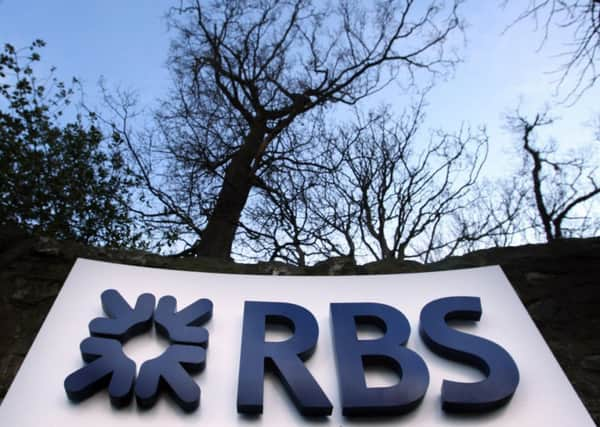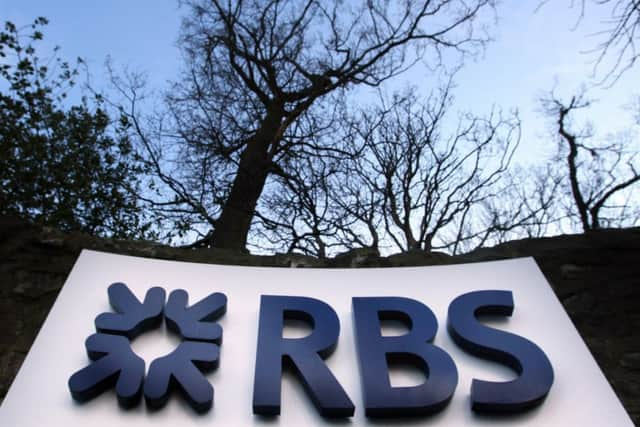RBS sell-off unlikely before 2015 admits Osborne


The 81% state-owned bank will create an internal “bad bank” of £38 billion of problem loans, but sidestepped a feared full external split after a Government-commissioned review said that would be too risky and expensive.
It came as RBS reported losses of £634 million in today’s third-quarter results, hurt by one-off items and an additional charge of £250 million to cover mis-selling of payment protection insurance (PPI).
Advertisement
Hide AdAdvertisement
Hide AdNew chief executive Ross McEwan has also started a deep review of the lender which will report back in February, and is to speed up the sale of its Citizens US banking subsidiary, with a partial flotation next year.


Mr Osborne said he thought it was “unlikely” that RBS could be sold off and returned to the private sector before the next general election in May 2015.
“I think, sadly, it is still some way off,” he told BBC Radio 4’s Today programme.
“I think, quite frankly, it is unlikely before the general election.
Advertisement
Hide AdAdvertisement
Hide Ad“If there was a transformation in RBS and all these problems that it has to confront were dealt with much more quickly, maybe we would reconsider. But I say ‘unlikely’ in the real sense of the word, which is I don’t think it’s very likely.”
Mr Osborne added: “I wouldn’t feel comfortable going to the British people and saying ‘Invest in RBS’ until I was absolutely clear that it was on top of its problems.”
He played down suggestions that taxpayers could be given shares in the bank when it was finally returned to the private sector.
“I prefer the approach we have taken with Lloyds, which is we sell the shares and then we make a profit for the taxpayer and we can use that to pay down our debts which collectively as a nation, sadly, we have too much of,” he said.
Advertisement
Hide AdAdvertisement
Hide Ad“I haven’t completely closed my mind to it but I have to say the most preferred option, I think, at the moment is the approach we have taken with Lloyds.”
Last night RBS suspended two traders in connection with the possible fixing of the currency market.
It came amid a worldwide investigation into foreign exchange (forex) trading activities by a number of banks, involving regulators in Britain, Switzerland, the US and Hong Kong.
The Financial Times said the two traders would be the first RBS employees to be suspended in the widening probe that echoes the Libor interbank lending scandal.
RBS declined to comment.
Advertisement
Hide AdAdvertisement
Hide AdThe Financial Conduct Authority (FCA) revealed earlier this month it had launched its own investigation into the forex market, which is worth £3 trillion a day globally.
At the time, taxpayer-backed RBS confirmed it had been contacted by the FCA over the issue and was “co-operating fully”.
The bank is understood to have handed over electronic messages to the FCA in connection with the investigation.
It said: “We can confirm that we were contacted by the FCA on this matter.
Advertisement
Hide AdAdvertisement
Hide Ad“Our ongoing inquiry into this matter continues and we are co-operating fully with the FCA and our other regulators.”
Earlier this week Barclays revealed it had also been drawn into the investigation and said it was co-operating with the FCA and was reviewing its foreign exchange trading over a period of several years to August this year.